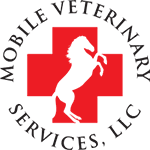 QUESTION:
QUESTION:
I have a 10 year old gelding that has had a number of “small” colics over that last couple of months. Most of them started with him not wanting to eat, and then within a few hours was laying down, and looking at his belly. In these episodes, I have only had to call the vet once, and when he was examining him, he said that there was a possibility that he had ulcers. Why, after having him for 3 years and never having colicked before this winter, is he having so many issues?
ANSWER:
While there are a number of reasons for a horse to colic, ulcers certainly have come into light over the last few years. Recent research has confirmed that our equine friends often deal with EGUS (Equine Gastric Ulcer Syndrome). The affect this can have on our horses range from behavioral changes to chronic/ repetitive colic. Ulcers in horses have been shown to appear after as little as five days after a small change in diet, exercise, or housing. There are certainly other factors that will increase any one horses’ particular chance for having ulcers. These factors include- general disposition (are they a “stressed” horse), are they under intense training, is there a new herd mate or stall neighbor. So in the case above, as veterinarians, we would ask many questions looking for changes or predisposing factors that might have suddenly led this horse to become an “ulcer horse.”
There is only one way to definitively diagnose gastric ulcers in a horse, and that is with a gastroscope. Often times, trial therapy is used to confirm your veterinarian’s suspicions of EGUS. We will begin treatment (with omeprazole, cimetidine, ranitidine, or famotidine) and the owners evaluate whether the treatment has reduced or eliminated the clinical signs that the horse was experiencing.


